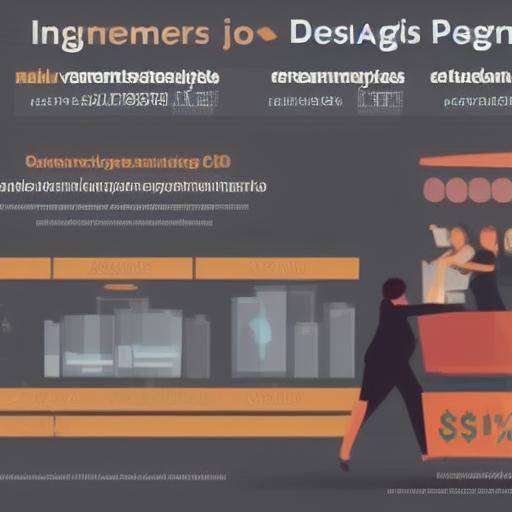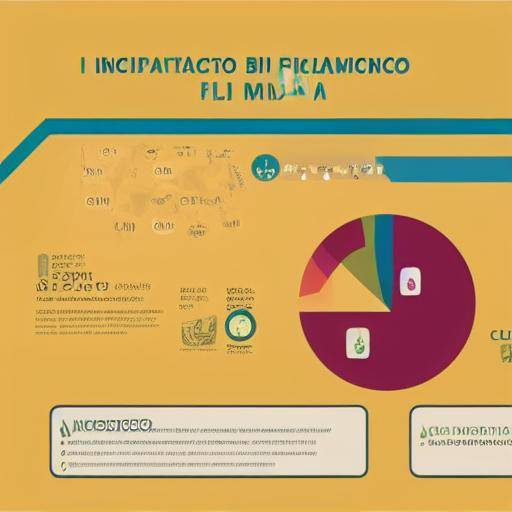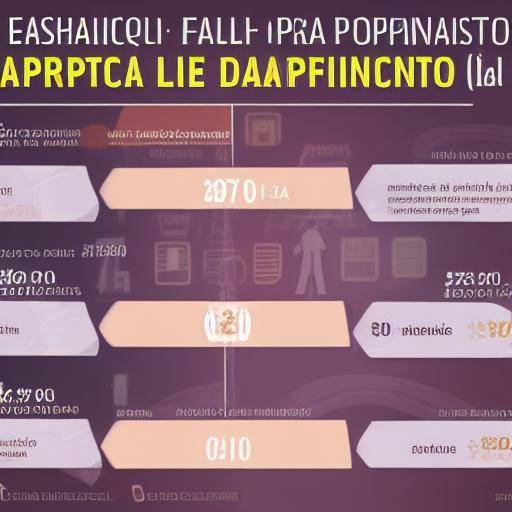
Introduction
Long-term investment is a strategy that requires careful planning and smart decisions. One of the keys to success in this type of investment is to understand the fundamental role of dividends. In this article, we will explore in depth the impact of dividend income on long-term investments, the importance of reinvesting these dividends and how they contribute to financial stability. In addition, we will discuss practical advice, expert opinions and future trends to help investors maximize their returns over time.
History and Background
The dividends have a long history in the world of investments. They go back centuries, when companies began to share their profits with shareholders. Over time, this practice has become a fundamental component of long-term profitability for investors. From the first dividends distributed by commercial companies in Ancient Greece to the development of profit-sharing policies in the modern world, dividends have evolved to become a crucial tool for long-term investors.
Over the years, dividends have been an indicator of the financial health of a company, providing investors with a constant source of income and an incentive for long-term investment. The stability and growth of dividends over time have been important markers to assess the performance and solidity of an investment.
Analysis in Deep
Income by dividends plays a crucial role in the creation of long-term wealth. Unlike capital gains, which are volatile and largely dependent on market fluctuations, dividends provide a steady flow of income, making them especially attractive to investors seeking stability and predictability in their portfolios.
Reinvestment of dividends is a powerful strategy that allows investors to exponentially increase the value of their investments over time. By reinvesting dividends in the acquisition of more shares or funds, investors can benefit from the compound interest effect, which means that dividends generated by new shares will also generate additional returns. This strategy can have a significant impact on the accumulation of long-term wealth.
Financial stability is another fundamental aspect of dividends in long-term investments. Companies that pay consistent dividends are usually well-established companies, with strong business models and prudent financial management. These features can provide investors with greater tranquillity and mitigate the risk compared to investments in companies that do not pay dividends or whose dividend policies are erratic.
Comprehensive review
In considering the importance of dividends in long-term investments, it is crucial to carefully analyse the different applications and best practices. Diversification of the portfolio, selection of companies with solid history dividends and attention to the economic cycle are key considerations to maximizing the benefits of dividends over time.
Experts agree that if dividends are reinvested steadily over the years, the results can be significant. Patience and discipline are, therefore, fundamental aspects of maximizing long-term dividend income.
Comparative analysis
Compare income from dividends, reinvestment and stability as individual concepts and their interrelationship is essential to understanding their impact on long-term investments. While dividend income provides a steady flow of income, reinvestment multiplies the growth potential. Stability, for its part, provides a solid basis for long-term planning.
When investors consider these three aspects together, they can build more resilient and profitable portfolios. By carefully balancing firms with solid foundations, prudent management and consistent dividend history, investors can maximize both income flow and long-term growth potential.
Practical Tips and Accessible Tips
In the light of the importance of dividends in long-term investments, it is crucial to provide practical advice that investors can implement in their strategies. Some of the most common recommendations include:
- Reinvest dividends systematically: This strategy can have a significant impact on the accumulation of wealth over time.
- Diversify the portfolio: Finding a variety of companies with solid dividend history can help mitigate the risk and maximize returns.
- Be attentive to the economic cycle: The different stages of the economic cycle can influence the profitability of companies and, therefore, their dividend policies.
Industry Information and Expert Reviews
Experts ' views and industry perspectives are valuable resources for investors seeking guidance in long-term strategies. Experts often provide expertise on market trends, emerging risks and potential opportunities in the context of dividend income and reinvestment.
The general consensus among experts is that dividends can play a key role in building long-term wealth, and that strategic reinvestment of these revenues can further enhance this effect.
Case Studies and Practical Applications
Case studies that illustrate the practical application of dividend and reinvestment strategies can provide valuable lessons. These practical cases demonstrate how real investors have used dividends as part of their long-term investment strategy and the results they have achieved.
By analysing practical cases of individual companies or investors, readers can gain a clearer understanding of the challenges, opportunities and decisions that influence long-term success.
Future Trends and Predictions
As financial markets evolve and new trends develop, it is crucial to anticipate how dividend income, reinvestment and stability could impact the future. Essential analysis-based predictions and economic projections can provide investors with valuable insights to adapt their long-term strategies.
Emerging trends, such as changes in corporate dividend policy or portfolio management innovations, also provide clues on how long-term investment strategies can evolve.
Conclusion
In short, dividend revenues play an essential role in long-term investments, providing stability, generating constant income and offering significant growth opportunities through strategic reinvestment. By fully understanding the importance of dividends, investors can make informed decisions that maximize their returns and the solidity of their portfolios over time.
Frequently asked questions
Why are dividend revenues important in long-term investments?
Dividend income provides investors with a steady flow of income, which can contribute to stability and predictability in long-term portfolios. In addition, reinvested dividends can significantly enhance wealth growth over time through the compound interest effect.
What factors influence the stability of income by dividends?
The stability of income by dividends is influenced by the financial strength of companies, consistency in the sharing of benefits and the quality of management. Companies with solid balances and disciplined dividend policies tend to offer more stable dividends.
What is the importance of the reinvestment of
dividends on long-term investments?
The reinvestment of dividends is fundamental because it allows investors to enhance the growth of their investments over time. By reinvesting dividends in the acquisition of more shares or funds, the power of composite interest is exploited, which can lead to an exponential increase in portfolio value over time.
What are the advantages of investing in companies with strong dividend policies?
Companies with strong dividend history are usually well-established and financially healthy companies. Investing in these companies can provide a combination of passive income through dividends and a long-term growth potential, which can contribute to the stability and solidity of the portfolio.
What are some tips for maximizing long-term dividend income?
Some practical tips include portfolio diversification with companies from different sectors and regions, attention to the economic cycle to take advantage of strategic purchasing opportunities and patience to allow the composite interest effect to increase the value of investment over time.
How can investors evaluate the quality of a company's dividend policies?
The quality of a company's dividend policies can be evaluated through key financial indicators, such as the price/benefit ratio, the price/flow ratio, the stability of profits and the trajectory of dividends in time. In addition, it is important to consider the integrity and transparency of management in relation to dividend policies.
What are the emerging trends in relation to dividend income and reinvestment?
Emerging trends include the increase in enterprises that choose to pay dividends, the growth of investment funds focused on dividends and the evolution of investment strategies based on sustainable income generation. In addition, process digitalization and automation are changing the way investors manage and reinvest their dividend income.
What is the impact of government policies and regulatory changes on dividend income?
Changes in fiscal and regulatory policies may have a significant impact on dividend income, influencing both the amount of distributed dividends and taxation on such income. It is crucial for investors to be aware of these changes and consider how they can affect their long-term investment strategy.
Conclusion I hope this article has provided a clear and comprehensive view on the role of dividend income in long-term investments, the importance of reinvestment, and how they contribute to financial stability. By fully understanding these concepts, investors can make informed decisions that allow them to maximize their returns over time and build strong and profitable portfolios. If you have more questions or need specific advice for your investments, do not hesitate to consult with a financial professional.






















































